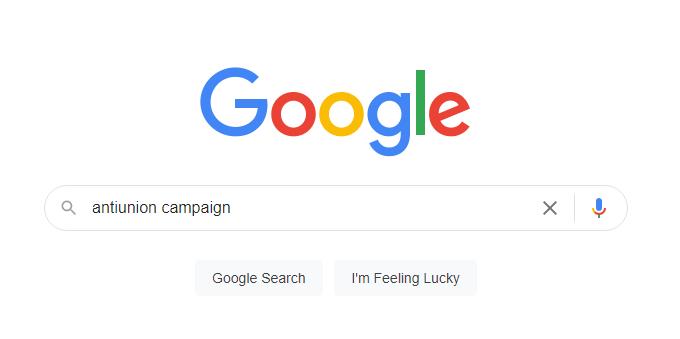A judge appointed by the U.S. Labor Relations Board (NLRB) ruled that Google must hand over about 180 documents related to "internal movements" aimed at cracking down on union organizations. One of the documents, google lawyers call the Vivian Project, shows that the company tried to make employees who were actively involved in the effort realize that "the union sucks" between 2018 and 2020.

The documents are part of a December 2020 case filed by the NLRB against Google, alleging that the Internet giant violated U.S. labor rights protection laws by monitoring and sturding employees who are organizing protests and trying to join unions.
In 2019, Laurence Berland, a former Google employee who was fired, objected to the company's hiring of IRI as a consultant, which was notorious for undermining union formation.
Laurence Berland was ruthlessly fired by Google after reviewing other employees' schedules, after which NLRB found that the company's policy violated regulations.
Former Google employee Kathryn Spiers also said she was fired after creating a pop-up window for a colleague to access the IRI Consultant website. The company claimed it violated security policies, but the NLRB found that Google's dismissal was also illegal.
Google tried to invoke "attorney-client privilege" to protect some of the documents subpoenaed in this case, but according to the receipts TheVerge received after requesting under the Freedom of Information Act on January 7:
Administrative Law Judge Paul Bogas pointed out that Google's words and actions, to say that the good point is a kind of excessive expansion.
In his ruling, the judge wrote that IRI provided Google with "anti-guild information and scaling strategies" tailored to combat the company's employees, but that IRI did not provide Google with legal advice protected by "attorney-client privilege."
The judge added that google seems to have copied documents that had been processed by its legal counsel out of an attempt to keep the documents confidential, but that should not be considered a privilege.
Google can't just turn the fact that employees are trying to organize guilds into so-called "lawsuits" to cloak them in privilege in all aspects of the anti-guild movement.
Even so, Google spokesman Jennifer Rodstrom argued in an email to The Verge:
I think the potential keystrokes have nothing to do with guild work, but rather explicitly involve employees violating security protocols in order to improperly access the company's confidential information and systems.
As for the partnership with IRI, the agency is only one of the 'dozens of outside consultants' with google connections.
In the end, if Google loses the final case, the company may be forced to re-hire Berland and Spiers and pay salaries for that period.